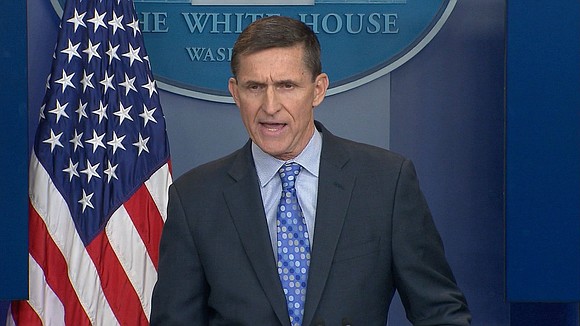Barr's reassurances about Mueller leave a lot of legal wiggle room
CNN/Stylemagazine.com Newswire | 1/15/2019, 9:34 p.m.

By Michael Zeldin, CNN Legal Analyst
(CNN) -- In his written testimony, attorney general nominee William Barr refers to special counsel Robert Mueller and states that if he is confirmed, he "will not permit partisan politics, personal interests, or any other improper consideration to interfere with this or any other investigation." He writes: "I will follow the Special Counsel regulations scrupulously and in good faith, and on my watch, Bob will be allowed to complete his work."
Barr acknowledges the importance of the public and Congress being informed of the results of Mueller's investigation. He indicates that his goal "will be to provide as much transparency as I can consistent with the law." And, his legal judgment will be "based solely on the law and will let no personal, political, or other improper interests influence my decision."
Barr's written testimony, released in advance of his confirmation hearing starting Tuesday, provides the long-sought reassurance that Congress and the public have been seeking -- that Mueller will be permitted to complete his investigation. On its face, his words about providing as much transparency as he can to the public and Congress about the results of Mueller's work also appear reassuring.
This may be Barr's honest intention, but because he is basing his transparency decisions and judgments on the special counsel regulations and the law, his statements raise questions about the extent to which he, in fact, will disclose Mueller's results and in what form. (Note that Barr speaks of the "results of Mueller's work," as opposed to the report itself.)
It is important, therefore, to understand the special counsel regulations and Justice Department policy that govern Mueller's investigation and to question Barr about his interpretation of the regulations and those policies.
Reports are referred to in two sections of the regulations: 28 CFR 600.8(c) and 600.9.
Section 600.8 (c) says that, at the conclusion of the special counsel's work, he or she shall provide the attorney general with a confidential report explaining the prosecution or declination decisions reached by the special counsel.
Nowhere in the regulations does it mention releasing or even authorizing the release of the special counsel's closing report to the public or even to Congress.
Simply put, the regulation only authorizes that a confidential report be given to the attorney general. So, when Barr indicates that he will "follow the Special Counsel regulations scrupulously," he could interpret this regulation as denying him the legal authority to release Mueller's report either to Congress or the American public.
Section 600.9 is more complex and provides two bases for disclosure.
Section 600.9 (a) requires that the attorney general notify and explain to the chairman and ranking minority member of the Judiciary Committees of each house of Congress in only three circumstances: (1) upon the appointment of a special counsel; (2) upon the removal of a special counsel; and (3) upon conclusion of the Special Counsel's investigation, including, when the attorney general decides not to allow the special counsel to proceed as he has requested. Nothing more.
Consequently, while the attorney general is authorized to release these reports if he determines their release would be in the public interest, to the extent that release would comply with applicable legal restrictions, this notification portion of the regulation does not directly appear to provide a basis for Barr to release Mueller's entire final report or the results of his work either to Congress or to the American public.
Section 600.9 (c) governs all other releases of information by the special counsel -- to wit, possibly the final report. This section provides that disclosure shall be governed by the "generally applicable Departmental guidelines concerning public comment with respect to any criminal investigation and relevant law." This is in large measure the heart of the matter.
If we learned anything from the controversy over James Comey's press conferences -- where he sharply criticized Hillary Clinton's handling of her emails, and then announced that no charges were warranted -- it is that departmental guidelines foreclose commenting on criminal investigations, especially if the subjects of the investigation are not publicly charged with a crime.
Thus, because departmental policy prohibits Mueller from indicting a sitting President, release of his report (or at least parts of the report) would appear to contravene departmental policy regarding public comment on investigations not resulting in criminal charges. Again, consistent with law, this could provide Barr with a basis to refuse to release Mueller's final report.
Without a detailed understanding of Barr's interpretation of the special counsel regulations and the operative Justice Department policy concerning public comment with respect to criminal investigations, there is no way to know whether Barr's promise to "follow the Special Counsel regulations scrupulously and in good faith," and his belief that it is "very important that the public and Congress be informed of the results of the Special Counsel's work," have any practical meaning.
It will be up to the Senate Judiciary Committee to flesh this out before a final confirmation vote.
NOTE: This article has been updated to provide a fuller description of the rules governing release of information about special counsels by the attorney general.



